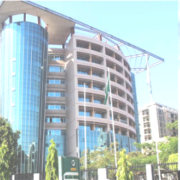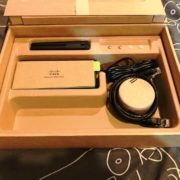Dr. Armstrong Takang, CEO and Principal Consultant at ALTEQ (ICT) Ltd and CEO of TSC, has been at the forefront of Nigeria’s ICT evolution for over two decades. A strategist, consultant, and technology advocate, he has consistently pushed for innovation-driven solutions to address Nigeria’s education, digital identity, and broadband challenges. From championing the use of locally manufactured computers to pioneering technology-enabled learning (TEL) programs in hundreds of schools nationwide, Dr. Takang has earned a reputation for thought leadership in shaping Nigeria’s digital landscape. In this interview with IT Edge News, he shares his candid views on the future of home-grown computers in the face of global competition, the critical role of technology in education, the effectiveness of government ICT policies, and how companies like ALTEQ and TSC are redefining project implementation, partnerships, and innovation to build a more productive Nigeria.
There is a future for home-based computers
Rising inflation, diminishing standard of living and aggressive entry of foreign PC brand at lower cost, do you sincerely see a future for home-made computers? And what will inform your position?
Your question touches on a very important aspect of the IT business across the world. iPhones from China, software from India. In this age of globalisation and convergence, the thinking really should not be about where the computers are made but rather what value the technology adds to our national productivity. Most of the fastest growing economies of the world are not necessarily driven by their manufacturing capacity but rather by the robust nature of their service driven and knowledge-based economies.
If we can get support for the local OEM to manufacture at reasonable cost for equal quality, then there is a future for home-based computers. Otherwise, the concept of home-made computers will just be one of our nationalistic aspirations that has no economic basis for existence. Undoubtedly, I remain an advocate for patronage of local OEMs, and as an organisation have demonstrated this through existing partnerships that we have. In fact, over the past 4 years, we have purchased over 5,000 units of locally made computers for various projects. However, the ultimate alignment and bias must be on the side of quality and utility. That is the only way the entire ICT sector can have a future we can be proud of.
Transforming lives through the power of technology
“It is extremely necessary that ICT implementation in this country outgrows tendencies to be pedestrian.”
Alteq, TSC, what is the link between the two companies?
Alteq is the parent company with particular focus on ICT solution development, consulting, propagation, and project management. TSC on the other hand is an ICT implementation vehicle to provide top notch ICT project implementation services. As a form of background, TSC was born of our desire to deliver incomparable value to the average Nigerian.
As a matter of fact, it is extremely necessary that ICT implementation in this country outgrows tendencies to be pedestrian, and each pillar across the various sectors begin to focus more on creating long term value out of ICT projects. This is one area I believe TSC is doing a sterling job, by providing thought leadership, and generally laying the foundation and forging a legacy for technology in Nigeria.
How will you assess your learning solutions in schools where they have been deployed? Has technology truly impacted on our educational standard or are we not just having razzmatazz over expensive tech-toys in the classroom?
I have seen lives transformed through the power of technology which we have made available to rural schools, and which ordinary citizens of Nigerian were passionate enough to involve themselves with. Is this happening in every single school? No! But the future is something that we can never run away from. The technology enabled learning concept in the education sector is here to stay and in fact will define the rate of acceleration of our economic growth as a nation.
Technology changes dynamics of existence and our responses
The reality is that when you give a car to someone who has always walked to places, you change the dynamics of their very existence. As a result you will need to provide additional tools to facilitate the use of the vehicle. If you fail to provide such tools as training on how to operate the vehicle, maintain the vehicle, a ready and affordable market for replacement parts, the end result will be a sub-optimal.
As a matter of fact, the ICT4E debate is raging fiercely all over the developing world. Critics voice all sorts of cleverly thought-out objections to Governments spending billions of dollars on technology, when schools lack infrastructure, MDGs are not yet attained etc. But the honest truth is, what reasonable alternative is there? Which tool can match the power to propel a society towards establishing them as a force to reckon with, other than technology?
Lack of enforceable standardization in the industry
As an expert and a private sector player in the field, has government policy thrust been effective in helping computer and Internet diffusion?
By all means, Government has been a major driver of ICT proliferation in Nigeria. The National ICT Plan, which I had opportunity to play a role in developing, holds inestimable potential for transforming this country, if implemented appropriately. But if you had asked me if they have done enough, I would say no. One key areas of concern is the lack of enforceable standardization in some aspects of the industry.
Licensing several computer and internet service providers with a view to bringing down cost through competition is a good idea only if you are compelling all players to meet a minimum standard. Otherwise, internet service provision may not mean the same to all providers, hence the end-users suffer.
Another area where I see a need for more work is the lack of a concrete National broadband strategy. The level of penetration of internet in this country, as well as the average quality of service available is still rather appalling. Alot still needs to be done in terms of service provision and bridging the digital divide.
What level of partnerships do you have in Nigeria to penetrate the market and establish your brand?
We have and are constantly establishing and enhancing partnerships that help us leverage on the core competencies of other players in the ICT ecosystem. For example, we have partnerships with a few of the local OEM for PCs and a number of software development companies. These partnerships have greatly enhanced our solution offerings to our clients in the Nigerian market. Its a simple part of our strategy… we are relationship led, and opportunity driven, so our doors are constantly open to working with Vendors and Producers who know their onions and are prepared to do business with us.
Future of Computing devices
Where does the TSC rate in the Nigeria PC/ICT market?
Without solid comparatives I can only provide you some perspectives. We were the pioneer designer and implementer of the TEL program in over 300 schools in all 36 states of the federation. We developed most of the framework for implementation of the TEL program with a special focus on sustainability. We have constantly displayed such thought leadership, opening up markets and opportunities for other companies within our business space. TSC typically is where the market is headed, most of the time.
Where does the future lie: in small handhelds, PCs or netbooks/notebooks for web, video and all that? And how does TSC fit into all these?
The future is still going to be largely driven by peoples thirst for information when and where needed. We will continue to see new devices that will integrate most features of technology that people use now for both business and social interactions. On a global scale, however, I generally discourage sweeping comparisons of the ICT industry in the developed world, and within developing nations like Nigeria. The fact is that we still have a long way to go achieving such a perfect market for ICTs that is obtainable in the United States, South America and Europe. So whether it is hand-held, PCs or netbooks, our primary focus is for the people of Nigeria to live more productive lives through their usage.































